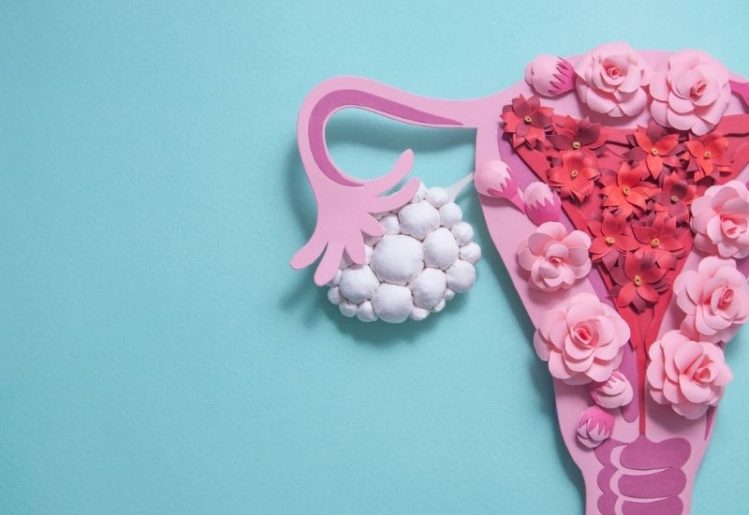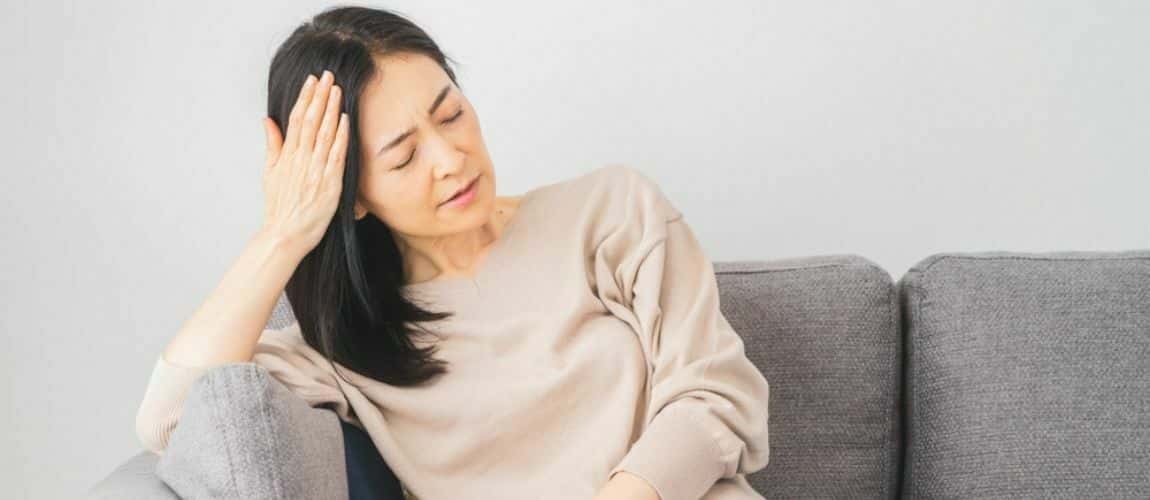Menopause is a significant period in a woman’s life during which the ovaries cease production of the sex hormones estrogen and progesterone. Menopause fatigue is one of the most common symptoms that occurs when the female body goes through this significant life change.
Menopause fatigue is rooted in a number of biological changes, most notably the hormone imbalances that happen as the body transitions through menopause. Here is what you need to know about this transition and how you can recognize and treat the symptoms of menopause.
How Menopause Affects Sleep
 To understand how menopause affects sleep, it is first necessary to understand more about what occurs during this body change. Menopause is triggered when the ovaries stop making estrogen and progesterone, sex hormones that also affect your sleep cycles. For example, estrogen is involved in regulating core body temperatures so that you can sleep better. Conversely, progesterone is involved in the breathing drive, keeping issues such as sleep apnea at bay.
To understand how menopause affects sleep, it is first necessary to understand more about what occurs during this body change. Menopause is triggered when the ovaries stop making estrogen and progesterone, sex hormones that also affect your sleep cycles. For example, estrogen is involved in regulating core body temperatures so that you can sleep better. Conversely, progesterone is involved in the breathing drive, keeping issues such as sleep apnea at bay.
Understanding the relationship between these hormones and your sleep cycles makes it no surprise that one of the most common symptoms of menopause is fatigue. Hormonal imbalances during menopause also lead to problems such as hot flashes and night sweats. Because a hot flash is comprised of an increase in heat and a rush of adrenaline, it can make it more difficult to fall back asleep when awoken by this symptom in the middle of the night.
Another common way that menopause affects sleep cycles is through contributing to breathing irregularities. Research has shown that both snoring and sleep apnea are more prevalent in postmeopausal women. You may not even realize that snoring and the temporary pauses in breathing associated with sleep apnea are affecting the quality of sleep that you get each night. A medical professional can help you to detect these issues and treat them if necessary.
Lastly, the general life events that happen during this season in life can exacerbate menopause fatigue. For instance, situations such as caring for aging parents and the stress that it may bring can also make it more difficult to get the sleep that you need.
Signs and Symptoms of Menopause Fatigue
In addition to the general symptoms of menopause, such as night sweats, hot flashes, irregular periods, mood swings and weight gain, there are also symptoms that are specifically indicative menopause fatigue. Women dealing with menopause-related fatigue may notice that they have less energy than usual, necessitating more frequent breaks throughout the course of the day.
This fatigue may also manifest itself mentally and emotionally. For example, women going through this change may notice that they are having a harder time remembering basic information, concentrating or making difficult decisions.
How to Treat Menopause Fatigue
Treating this type of fatigue starts with treating the symptoms of general menopause.
Hormone Therapy
Because menopause is related to hormones, in order to soothe many of the accompanying symptoms, it is necessary to be proactive about maintaining a healthy balance of hormones during this life change. Thus, the primary medical treatment used to mitigate the symptoms of menopause is hormone therapy.
Hormone therapy seeks to replace lost hormones, helping to reduce the fatigue that can be associated with menopause. The additional hormones introduced via hormone therapy may also decrease the number of hot flashes, helping you to sleep better in the process. Hormone therapy is typically administered through the use of oral medication, topical gels or skin patches.
Supplements
If you are looking for a treatment that is less invasive and more natural than hormone therapy, you may want to consider the use of dietary supplements. A supplement such as Menochron® delivers lignans, soy isoflavones and other ingredients that work together to help soothe the symptoms of menopause so that you can regulate your sleeping patterns and protect against fatigue. For instance, the plant ingredient lignan has been shown to be instrumental in reducing the number of hot flashes by more than 50 percent. A supplement is an easy and convenient way to go when it comes to battling the hormone imbalances associated with menopause.
Healthy Sleeping Habits
Apart from the steps taken to directly address the hormone imbalance brought on by menopause, you can also fight menopause fatigue by being intentional about creating healthy sleeping habits. This includes ensuring that your sleeping environment is comfortable, avoiding blue light in the few hours before bedtime and sticking with a regular bedtime routine.
Exercise
 As with nearly any health condition, there is immense value in being diligent about implementing a regular exercise routine. Moderate physical activity most days of the week is directly related to the amount of energy that you have. A regular exercise routine also naturally promotes healthier sleep cycles. As a bonus, exercise is also beneficial for maintaining optimal bone density after menopause, a significant problem for this age group.
As with nearly any health condition, there is immense value in being diligent about implementing a regular exercise routine. Moderate physical activity most days of the week is directly related to the amount of energy that you have. A regular exercise routine also naturally promotes healthier sleep cycles. As a bonus, exercise is also beneficial for maintaining optimal bone density after menopause, a significant problem for this age group.
Limit Alcohol and Stimulants
It may be tempting to lean on caffeine to get you through the day when you are low on energy. However, it is important to limit this stimulant in the late afternoon and evening hours if you are having problems falling and staying asleep. The same practice applies to alcohol. While those few glasses of wine may make you fall asleep faster, they also make it likely that you will awaken in the middle of the night.

